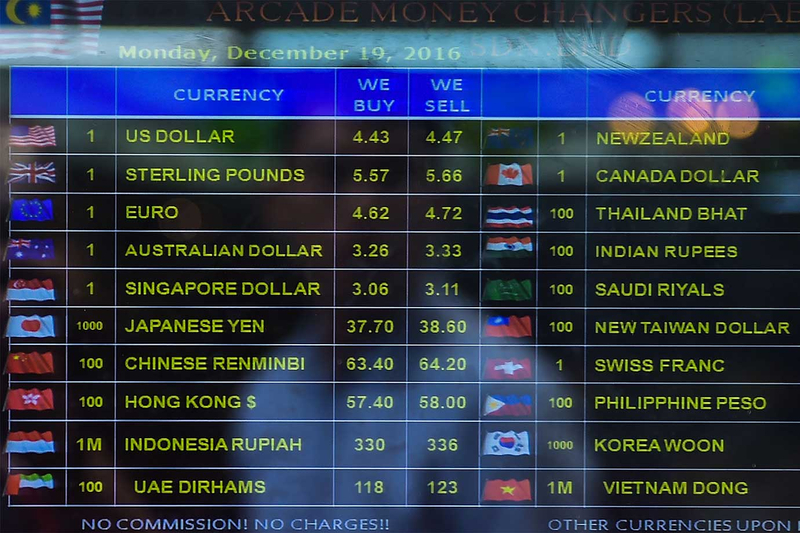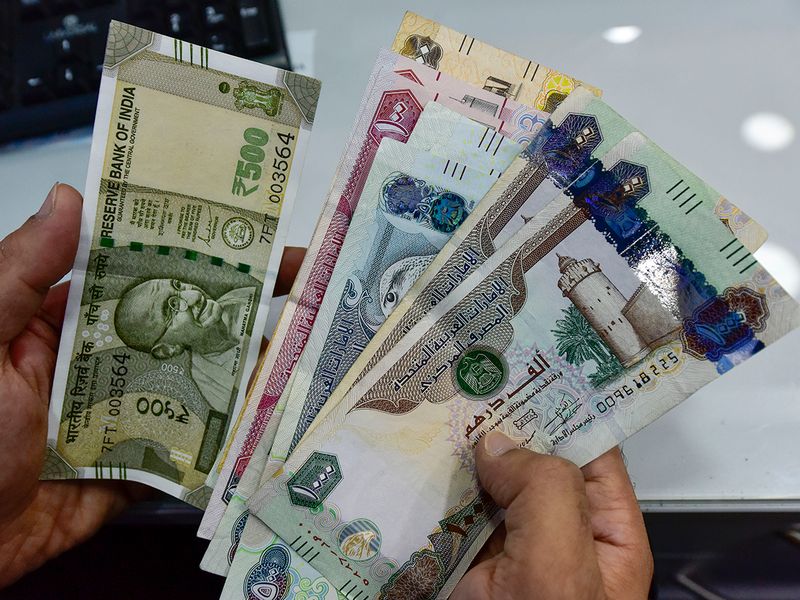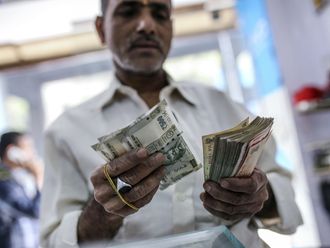
Dubai: Ever wondered why central banks worldwide raise rates in tandem with the US? Does the movement of currencies and the fluctuation seen in exchange rates have anything to do with it?
It partly does. One reason why being that higher interest rates in a country can increase the value of that country's currency relative to nations offering lower interest rates.
Economic stability and the demand for a country's goods and services are also key factors in currency valuation. Inflation often lead central banks to set higher interest rates to help cool a hot economy.
However, when it comes to foreign exchange rates, the co-relation with interest rates isn’t as straightforward. Let’s understand why.
Do forex rates rise or fall when interest rates rise?
A country hiking interest rates can be a major factor influencing currency value and exchange rates, but a currency's exchange rate with other currencies is detrimental of a number of other factors.
A number of other interrelated elements that reflect the overall financial condition of a country with respect to other nations, are responsible for the rise and fall of an exchange rate.
Higher interest rates increase the value of a country's currency, primarily because higher interest rates tend to attract foreign investment, increasing the demand for and value of the home country's currency.
Conversely, lower interest rates tend to be unattractive for foreign investment and decrease the currency's value.

This is given the fact that central banks often raise interest rates in response to rising inflation in an attempt to cool off an overheating economy.
However, if inflation rises too quickly, it can devalue a nation's money quicker than interest rates can compensate savers.
How economic stability plays a crucial role in currency valuation
A country having better balance between imports and exports can be a factor in determining currency value, as greater demand for a country's products means high demand for its currency as well.
Apart from a balance in trade, another indicator of economic stability that investors consider in assessing a given currency is the gross domestic product (GDP, i.e. the total value of goods produced and services provided in a country during one year).
A country's level of debt is vital too. High levels of debt, while manageable for shorter time periods, can lead to higher inflation rates and may eventually prompt a devaluation of a country's currency.
The US dollar is most often perceived as a safe haven for currency investors, given that the value of the US dollar has held itself steady.
How inflation affects exchange rates
Inflation and interest rates are closely related, and both affect exchange rates. Some inflation - rising prices of goods and services - is healthy for an economy, as it shows increasing demand versus supply.
However, too much inflation can be a problem, as goods and services become less affordable. Central banks consider this balance when setting interest rates.
If inflation is below its target level, a central bank may look to cut interest rates. Lower interest rates make it cheaper to borrow, and less rewarding to save, which encourages people to spend.
That increase in demand can push inflation higher. But if inflation is rising too fast, a central bank may increase interest rates, aiming for the opposite effect.
Higher rates can make it more expensive to borrow, and more rewarding to save, reducing demand and slowing inflation.
Higher interest rates can increase a currency's value. They can attract more overseas investment, which means more money coming into a country and higher demand for the currency.

Will higher interest rates affect remittance?
When the value of your home currency goes up, remittance is often discouraged because you get less for your money when you seek to send more money back home. But this trend isn’t long-lasting.
As explained above, the currency strengthens when the interest rate is raised and weakens when it is cut. This is because the currency’s exchange rate is determined by investors trading sums of currency.
If there are signs that the economy is expanding (such as interest rate rises), then the currency becomes more desirable, leading investors to demand more.
When the investors buy more, the value of the currency goes up. However, it’s not just the act of raising or cutting interest rates that impacts the currency’s value.
Despite the interest rate being raised and currency surging initially, in the long run your home currency is expected to weaken, and this is favourable for expats when it comes to better remittance rates.
Key takeaways
As interest rates go up, interest in that country's currency goes up. As global investors pour their money into countries, they get a higher return on their investment.
If a country raises interest rates over an extended period of time, this can cause a broad trend against other currencies. Sometimes a country will have a high-interest rate but a falling currency.
Such a disparity is usually an indication that the amount of interest they are paying isn't worth the risk required. The other thing it can indicate is that there are signs that rates will be lowered soon.
While it is true that rates do not move much, expectations on the direction and slope of rate changes seem to change on a week-to-week basis.
There are always multiple factors that move a currency, but interest is one of the number one factors, only followed by risk.
So, as well as interest rates going up or down, the currency can also be impacted by the surrounding interest rates, economic data and expectations about the direction of interest rates, as well as a host of other factors.












